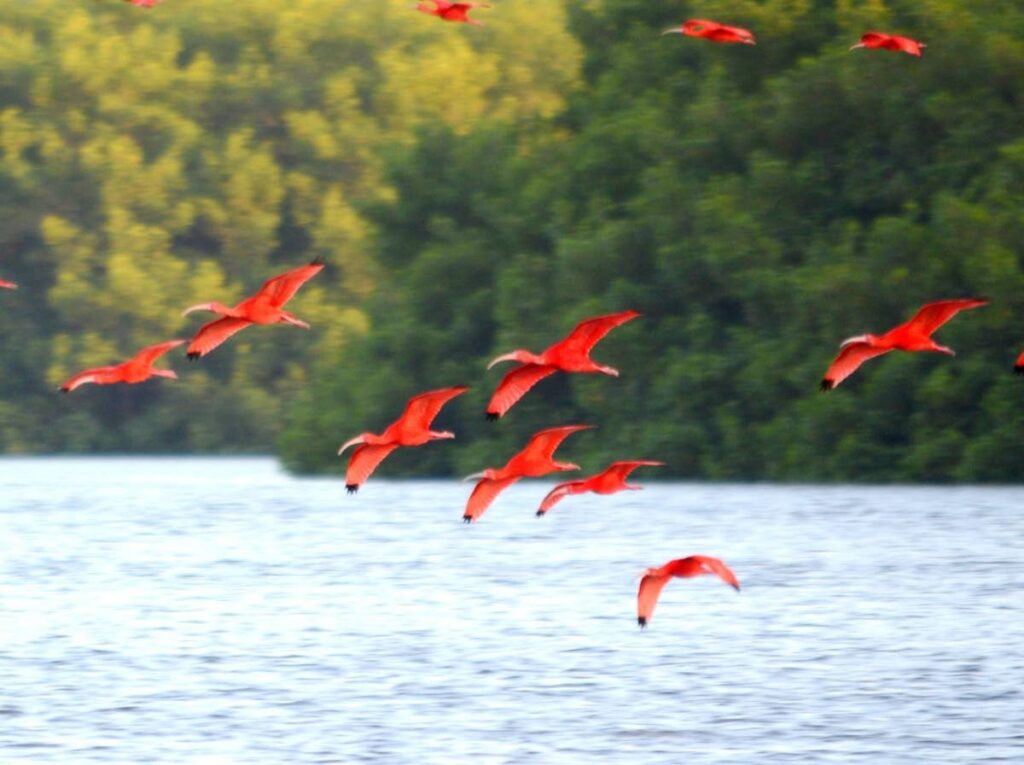World Wetlands Day 2023

Joint submission by the Embassies of Mexico, Argentina, France, Germany, the Netherlands, Spain, the High Commissions of Canada and India, and the EU Delegation to TT
WORLD Wetlands Day, celebrated annually on February 2, aims to raise global awareness about the vital role of wetlands for people and planet. This day also marks the date of the adoption of the Convention on Wetlands on February 2, 1971, in Ramsar, Iran. The convention entered into force in Trinidad and Tobago in 1993.
In the race to preserve the planet for future generations, and where the narrative tends to revolve around our oceans and forests, wetlands may seem to be a "forgotten stepchild." Yet wetlands are critical for Earth, providing food and jobs, vital flood control and fresh water. Our wetlands safeguard biodiversity – approximately 40 per cent of animals and plants call wetlands home – and even mitigate climate change. Wetlands are essential if we are to reverse the climate and biodiversity crises.
Yet the astounding reality is that almost 90 per cent of the world’s wetlands have already been lost, a rate of decline that is three times more than that of forests. The decline of freshwater animals and plants from wetlands is equally astounding at 83 per cent.
TT is home to three wetlands of international importance (known as Ramsar Sites, named after the convention) – the Caroni Swamp, the Nariva Swamp and the Buccoo Reef/Bon Accord Lagoon Complex.
The Caroni Swamp provides a variety of habitats for flora and fauna, including 20 endangered bird species, and it is home to the national symbol – the scarlet ibis. It is a very productive area of wetland that provides food (organic production) and provides protection. It is also a nursery for marine and freshwater species. The Caroni Swamp is important economically and is a popular site for ecotourism.
Unfortunately, the swamp continues to be threatened by human activity. Pollution from sewage, industry and agriculture runoff has inflicted severe damage, resulting in frequent occurrences of fish kills and mangrove dieback. In recent times, poaching has also become a major issue.
The Nanan family has spent the last 80+ years working to ensure the survival of the Caroni Swamp/Bird Sanctuary. Most recently, they have been advocating for the scarlet ibis to be declared an environmentally sensitive species. They also continue to monitor any disturbance to the flora and fauna and work hand in hand with the relevant authorities to protect and preserve the Caroni Swamp wetland ecosystem.
On the other side of the Atlantic, despite global and national recognition of their importance, Europe’s wetlands remain under severe pressure from land use and pollution as well. Many wetland areas border agricultural land and most are near transport infrastructure.
The European Union estimates that more than 80 per cent of the continent’s habitats are in “poor” shape. Advocates say repairing those ecosystems is crucial to countering climate change and saving species from extinction. Since 1970, wetlands in western, central and eastern Europe have shrunk by 50 per cent. In the last decade, 71 per cent of fish and 60 per cent of amphibian populations have declined.
Between 1997 and 2011, the world lost an estimated €3.5 and €18.5 trillion per year in ecosystem services. These incredible natural and economic losses were addressed at the UN Biodiversity Conference (COP15) in Montreal, Canada, last December. The conference ended with a landmark biodiversity agreement, which is good news for the world’s wetlands as well.
The commitment made, "to halt and reverse nature loss, including putting 30 per cent of the planet and 30 per cent of degraded ecosystems under protection by 2030," included for the first time concrete measures to preserve and conserve our marshes, lakes, swamps, mangroves and estuaries.
In order to focus attention on the necessity and urgency of their protection, the ambassadors of the European Union, Germany, Spain, France, the Netherlands, Mexico, the High Commissioner of Canada, the Chargé d'Affaires of the Indian High Commission and the deputy ambassador of Argentina, together with the Nanan family, are marking this year's World Wetlands Day at the Caroni Swamp.
For that occasion, EU Delegation's Ambassador Peter Cavendish said: “For all the reasons that concern every one of us in protecting wetlands, the European Union proposed last year a legislation which still must be approved by the European Parliament before becoming law, but experts already called its mere introduction a landmark event.
"If passed, the Nature Restoration Law will require 27 European Union member states to develop national plans to restore at least 20 per cent of EU land and sea by 2030, and to repair all ecosystems in need of restoration by 2050. It will also ensure that the decline in pollinator populations is reversed by 2030, that peatlands are rewetted, marine habitats are restored, and river barriers are removed, allowing 25,000 kilometres of rivers to be free flowing."
Ambassador Cavendish added: “This is the first proposal of its kind, as it would make restoration targets legally binding. It lays out a way forward for Europe, but it also provides inspiration for other regions around the world.”


Comments
"World Wetlands Day 2023"